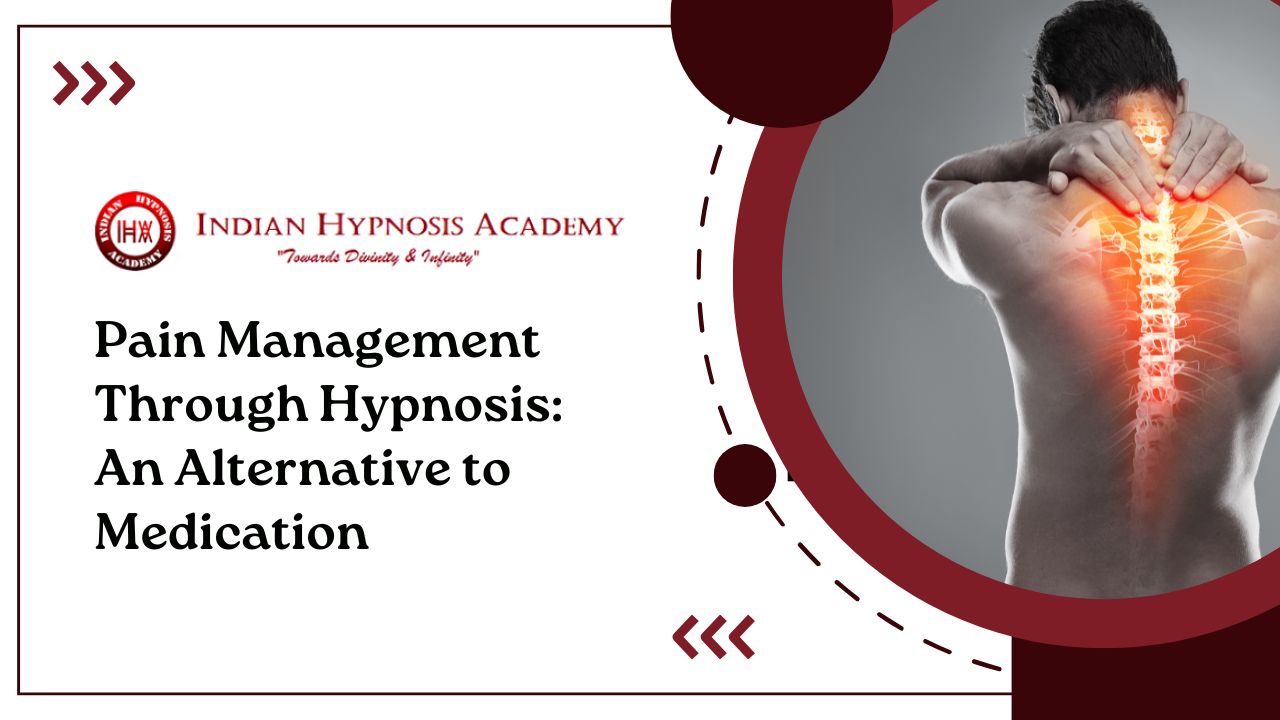Introduction to Hypnosis and Pain Management
Pain can take a significant toll on our lives, affecting everything from daily activities to overall well-being. For many, traditional pain management methods often involve medication, which can come with unwanted side effects or dependency issues. But what if there was an alternative? Enter hypnosis—a powerful technique that taps into the mind’s potential to alleviate pain naturally. This approach not only offers relief but also empowers individuals by fostering a deeper understanding of their own bodies and minds. Let’s explore how hypnosis works as an innovative tool for pain management and why it might just be the solution you’ve been searching for.
Understanding the Mind-Body Connection in Pain
The mind-body connection plays a crucial role in how we experience pain. Our thoughts, emotions, and mental state can significantly influence physical sensations. When stress or anxiety creeps in, it can amplify feelings of discomfort.
Understanding this relationship is vital for effective pain management. For instance, chronic pain often has psychological components that traditional treatments may overlook. By addressing emotional well-being alongside physical symptoms, individuals may find greater relief.
Visualization techniques and mindfulness practices help strengthen the mind’s role in managing pain. These methods encourage relaxation and awareness of bodily sensations without judgment.
Recognizing that our perception of pain is not solely biological opens new avenues for treatment options like hypnosis. This approach taps into the subconscious to reshape how we respond to discomfort, offering a promising alternative for many seeking relief from persistent issues.
The Science Behind Hypnosis for Pain Relief
Research indicates that hypnosis can significantly alter the way our brains process pain. When a person is hypnotized, their brain enters a unique state of focused attention and heightened suggestibility. This allows for profound changes in perception.
Studies using functional MRI scans show altered brain activity in regions associated with pain perception during hypnosis. These areas include the anterior cingulate cortex and the thalamus, effectively reducing the sensation of pain.
Moreover, hypnosis promotes relaxation by lowering stress levels. Stress often amplifies pain, making it seem more intense than it actually is. By addressing this cycle, individuals may experience less discomfort.
Clinical trials have demonstrated that patients undergoing surgery or suffering from chronic conditions report lower pain levels when hypnosis is part of their treatment plan. The mechanism seems to involve both psychological and physiological responses working together harmoniously to provide relief.
Types of Pain that can be Treated with Hypnosis
Hypnosis offers a versatile approach to pain management. It can be effective for various types of discomfort, both chronic and acute.
Many people have found relief from migraines and tension headaches through hypnotherapy. The relaxation techniques involved can significantly reduce the frequency and intensity of these debilitating episodes.
Lower back pain is another area where hypnosis shines. By focusing on mental imagery and deep relaxation, individuals often report lessening their symptoms over time.
Even conditions like fibromyalgia benefit from this technique. Hypnosis helps improve the perception of pain, allowing patients to better cope with its impacts on daily life.
Surgical recovery also sees advantages when hypnosis is employed pre- or post-operation. Patients may experience reduced postoperative pain levels, leading to faster recovery times.
Those dealing with arthritis-related discomfort can find solace in hypnotic suggestions aimed at managing inflammation and enhancing mobility.
Benefits of Using Hypnosis for Pain Management
Hypnosis offers a range of benefits for those seeking pain management. One significant advantage is its ability to reduce reliance on medication. This can lead to fewer side effects and a more natural approach to alleviating discomfort.
Additionally, hypnosis promotes relaxation. It helps calm the mind, which can significantly lower stress levels often associated with chronic pain conditions.
Many patients report enhanced emotional well-being after sessions. By addressing the psychological aspects of pain, individuals often find they cope better with their symptoms.
Another benefit lies in its versatility; hypnosis can be tailored to address various types of pain—be it acute or chronic.
Regular sessions may empower individuals by providing them with tools and techniques for self-management, fostering independence in their healing journey.
How to Find a Qualified Hypnotherapist
Finding a qualified hypnotherapist can feel overwhelming, but it doesn’t have to be. Start by seeking recommendations from healthcare providers or friends who have explored hypnosis for pain management.
Next, check professional organizations such as the American Society of Clinical Hypnosis or the National Guild of Hypnotists. These groups often provide directories of certified practitioners.
When you narrow down your options, look into their credentials and experience. A good hypnotherapist should have formal training in hypnosis and relevant fields like psychology or counseling.
Don’t hesitate to schedule an initial consultation. This meeting allows you to gauge their approach and comfort level with them.
Trust your instincts; feeling at ease with a therapist is crucial for effective treatment. Always ask questions about their techniques and success stories related to pain management before committing.
Real Life Success Stories: Patients Who Found Relief Through Hypnosis
Emily struggled with chronic back pain for years. Traditional treatments provided minimal relief. After exploring alternative options, she tried hypnosis. Within a few sessions, Emily reported significant improvements. She experienced less tension and heightened relaxation.
Then there’s Mark, a cancer survivor dealing with neuropathy from chemotherapy. Conventional medication fell short in managing his discomfort. Intrigued by the potential of hypnosis, he signed up for therapy sessions. To his surprise, Mark found not just relief but also a sense of empowerment over his pain.
Sarah faced debilitating migraines that disrupted her daily life. Medications often left her feeling foggy and fatigued. After seeking the help of a hypnotherapist specializing in pain management, she learned to visualize her headaches diminishing during attacks—an approach that brought unexpected success and clarity back into her life.
Each story highlights how hypnosis offers new hope for those who feel trapped by their pain conditions.
Other Holistic Approaches to Managing Pain
When exploring pain management, holistic approaches can offer valuable alternatives. Techniques like acupuncture have gained popularity for their ability to stimulate specific points in the body, promoting natural healing.
Massage therapy is another effective option. It relaxes tense muscles and enhances blood flow, facilitating recovery from chronic discomfort.
Mindfulness meditation helps individuals develop a greater awareness of their bodies and emotions. This practice encourages relaxation and reduces stress, which can exacerbate pain.
Yoga combines physical movement with breath control. This promotes flexibility and strength while also calming the mind—a dual benefit for pain sufferers.
Dietary changes shouldn’t be overlooked either. Anti-inflammatory foods such as turmeric or ginger can play a role in reducing overall discomfort.
Essential oils are gaining traction too; aromatherapy harnesses scents like lavender or eucalyptus to soothe both mind and body during painful episodes.
Conclusion
Pain management remains a critical aspect of health and wellness for many individuals. As the search for effective alternatives to medication continues, hypnosis emerges as a promising option. By tapping into the mind-body connection, hypnosis offers unique pathways to relieve pain that conventional treatments may overlook.
With growing scientific support and numerous success stories, more people are exploring how this technique can help them regain control over their lives. Whether dealing with chronic pain or acute discomfort, understanding and utilizing the power of hypnosis could pave the way toward a more holistic approach to pain management.
If you’re considering exploring this avenue further, take your time in finding a qualified hypnotherapist who suits your needs. Be open-minded about integrating other holistic methods alongside hypnosis to create a comprehensive strategy tailored specifically for you.
The journey toward effective pain relief is personal and varied; each step taken can lead you closer to comfort and well-being without solely relying on medications.




